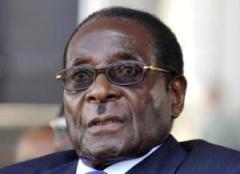NEWS: EU to increase investment in Zimbabwe
 Harare, ZIMBABWE, 1 April 2012/ TSZ: THE European Union (EU) says it intends to increase trade and investment relations with Zimbabwe and has urged the country to take advantage of the bloc’s support for the Common Market for East and Southern Africa (Comesa).
Harare, ZIMBABWE, 1 April 2012/ TSZ: THE European Union (EU) says it intends to increase trade and investment relations with Zimbabwe and has urged the country to take advantage of the bloc’s support for the Common Market for East and Southern Africa (Comesa).
The EU is funding and providing technical assistance to Comesa in order to enhance regional integration and trade activities.
EU Ambassador to Zimbabwe, Aldo Dell’Ariccia, said the bloc was working towards attracting the attention of business persons in Europe to invest in Zimbabwe as the country is moving towards creating predictable economic policies.
Last week, government launched the Industrial Development Policy (IDP) and the National Trade Policy in a bid to increase the country’s export competitiveness, a development which the ambassador described as a great example of strengthening democratic institutions in the country.
“The EU is looking forward to deepening relations with Zimbabwe in areas that include trade and investment,” said Dell’Ariccia, adding that trade between Zimbabwe and the EU had doubled since the inception of the inclusive government in 2009.
The EU provided technical assistance in the crafting of Zimbabwe’s recently launched trade policy.
Dell’Ariccia said trade between Zimbabwe and the EU had increased by 36% between 2010 and 2011. “This in turn created a positive trade balance of US$271 million in favour of Zimbabwe,” he said, adding that Zimbabwean products were in high demand on European markets.
The EU was once Zimbabwe’s major export destination accounting for two-thirds of total exports but political and economic problems led to sustained decimation of the country’s productive capacity since the year 2000.
The inception of the inclusive government in 2009 witnessed the adoption of multiple currencies, leading to increased investor confidence in Zimbabwe.
The EU intends to engage Zimbabwe under the auspices of interim Economic Partnership Agreements (EPAs) under its multilateral and bilateral trade framework.
Under this arrangement, exports from Zimbabwe, among other countries within the Comesa group, would enter European markets duty and quota-free.
The framework for regional partnership agreements came against the background where non-African Caribbean and Pacific (ACP) countries challenged the special trade provisions between the EU bloc and ACP countries at the World Trade Organisation, citing unfair competition.
The EU and ACP blocs then instituted interim agreements that would serve to counter this challenge and increase trade ties between both blocs.
In August 2009, Madagascar, Mauritius, Seychelles and Zimbabwe signed the interim arrangement.
Dell’Ariccia said critics had cited the EPA structure as a threat to Zimbabwe’s efforts aimed at resuscitating local industry, as most European products emanated from a background of subsidies, among other advantages.
“Rules of origin will be used as a method of ensuring that nascent industry is protected (from the influx of imports) in order to optimise on installed capacity. The EPAs will further enable Zimbabwe to gain access to funds through Comesa as part of the EU’s regional support programme,” he said.
Rules of origin are used to determine the country of origin of a product for purposes of fairness in international trade. These may be for purposes of quotas and anti-dumping among others.
It is anticipated that at least 45% of the EU’s product lines would enter Zimbabwe duty- free from 2013 should the EPAs be concluded soon.
Trade policy seeks to boost exports
One key objective of the trade policy launched last week is to increase exports and promote the diversification of the country’s export basket by harnessing comparative advantage in key priority sectors.
The policy also targets to increase export earnings by 10% annually to US$7 billion by 2016 from the US$4,3 billion recorded last year.
The trade policy encourages the business community in Zimbabwe to be more aggressive and take advantage of existing bilateral, regional and international trading arrangements which offer duty-free and quota-free market access in order to improve export performance.
(Pictured: Zimbabwe's President Robert Mugabe)
– BY KUDZAI CHIMHANGWA/ The Standard (Zimbabwe)
